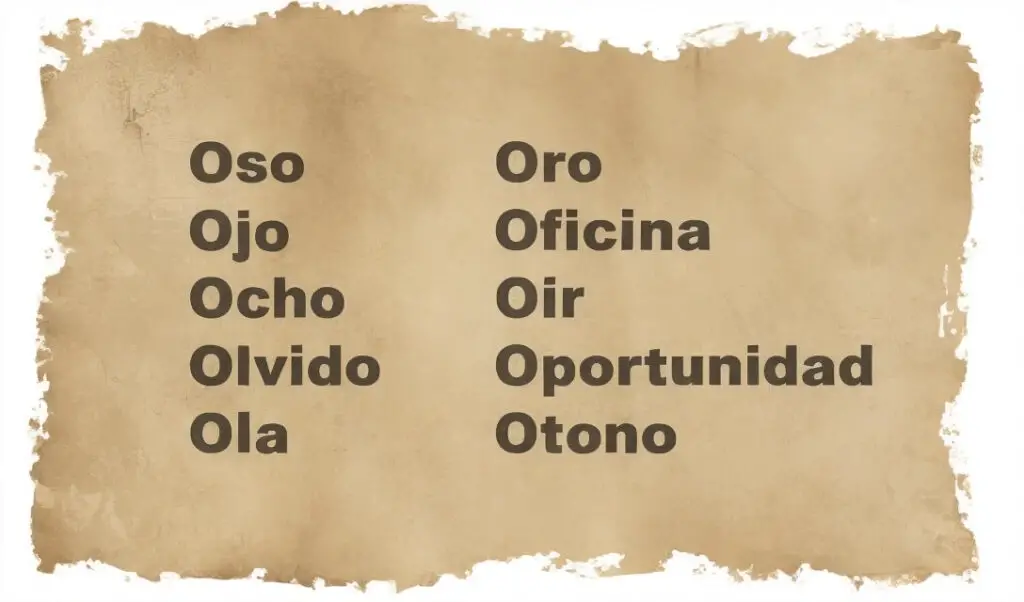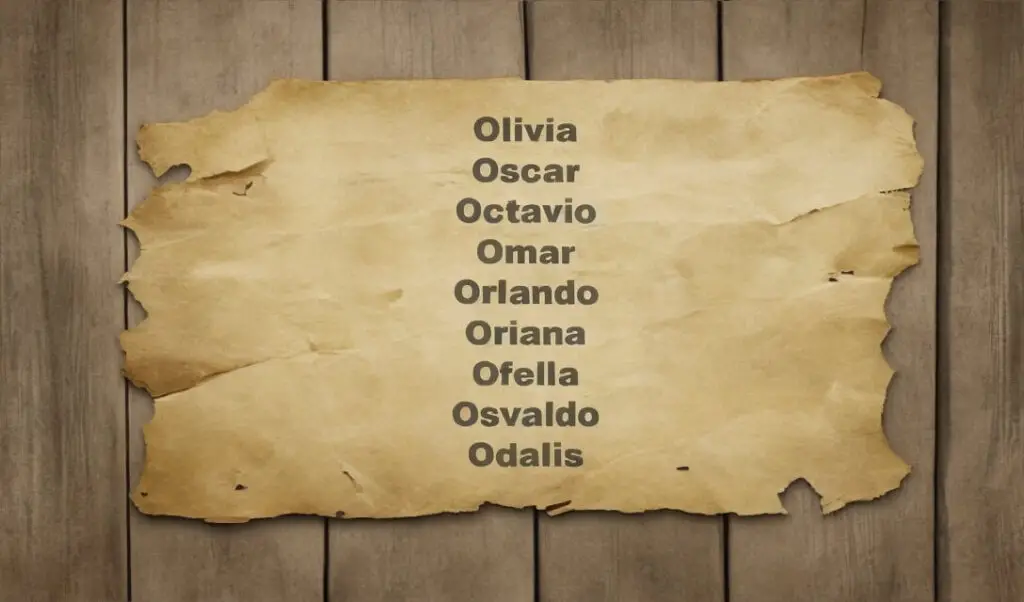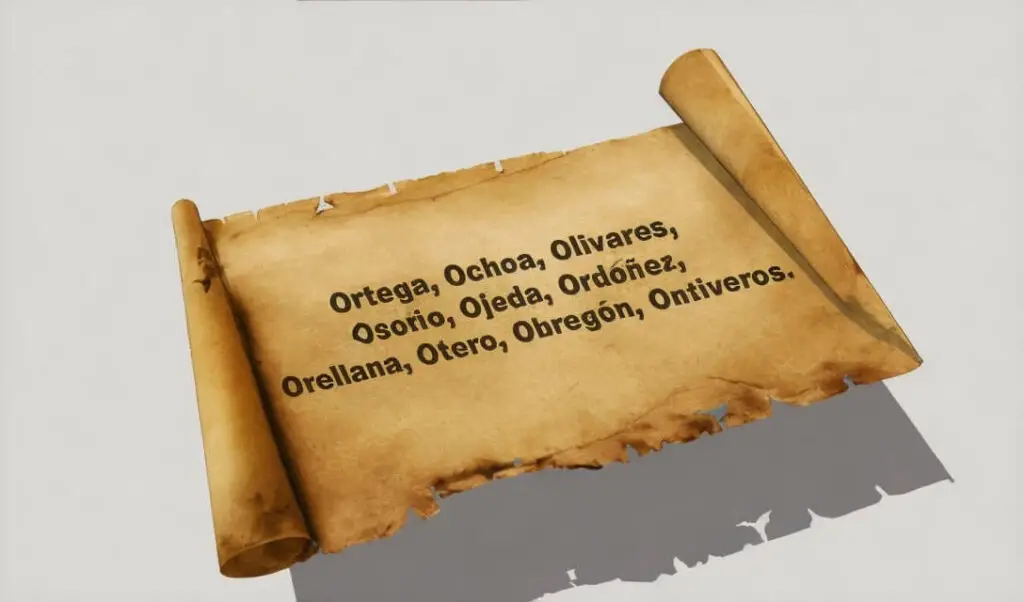The Spanish language is vast and fascinating, rich in history, culture, and nuance. Within its alphabet, one letter holds a place of prominence – the letter O. This rounded vowel is not only common in the lexicon, but it also represents a diversity of sounds, ideas, and cultural practices. It’s the letter that unites olé and oso, oso and ocho, and so much more. Whether you are new to the language or an experienced speaker, diving into the depths of the letter O in Spanish can offer a refreshing perspective on how language is much more than just a means of communication.
History and Origin of the Spanish Letter O

The history of the Spanish letter O is one that has been moulded by diverse influences over many centuries. Originating from the Greek alphabet’s omicron, it was passed to the Latin alphabet before making its way into Spanish.
The shape of the letter O is almost universal, seen in Semitic, Greek, and Latin scripts, among others. The roundness of its form could be said to reflect its versatile and expansive usage in language. Its roots in the Greek letter O (omicron) shows its ancient origins and underscores the longevity of this fundamental vowel.
Its evolution hasn’t been just in form but also in sound. From Old Spanish to Modern Spanish, the pronunciation has retained its purity, providing a consistent anchor in the language.
Pronunciation of the Letter O in Spanish

Pronouncing the Spanish O might seem straightforward, but it does hold its share of intricacies. To the untrained ear, it might seem similar to the English “o”, but the Spanish “o” is generally purer and less diphthongized.
The correct articulation is closer to the sound in the English word “more”. For English speakers learning Spanish, the temptation to round the vowel into a “oh” sound, like in “bone”, should be avoided.
The pronunciation can slightly vary between accents, regions, and even social factors, making Spanish a vibrant and dynamic language. The knowledge of how to pronounce the Spanish “O” also plays a part in knowing how to make a Spanish o on keyboard. For those interested in the phonetics, the Spanish O is a mid-back rounded vowel, symbolized as /o/ in the International Phonetic Alphabet.
Common Spanish Words That Start with the Letter O

The Spanish language is filled with beautiful words starting with the letter O. Here are ten commonly used Spanish words that start with the letter o or o letter words:
- Oso – Bear: An essential part of Spanish-speaking fauna vocabulary.
- Ojo – Eye: A body part and the gateway to understanding the world.
- Ocho – Eight: A crucial number in the numerical system.
- Olvido – Forgetfulness: An emotional word often used in Spanish literature.
- Ola – Wave: A term important both in nature and technology.
- Oro – Gold: A word with both literal and metaphorical significance.
- Oficina – Office: A crucial place for the working professional.
- Oír – To Hear: One of the primary senses.
- Oportunidad – Opportunity: A positive word signaling chances and possibilities.
- Otoño – Autumn: One of the four seasons, signifying transition and change.
Each of these words reflects the versatility of Spanish O words, illustrating how they span various fields and concepts.
Spanish Names That Start With The Letter O

Spanish culture is filled with beautiful names that begin with the letter O, many of which have roots in ancient traditions, biblical texts, and regional customs. Here are ten popular Spanish names that start with O or names that start with the letter O in Spanish:
- Olivia: Derived from the Latin word “oliva”, meaning olive, Olivia is a popular name symbolizing peace.
- Oscar: Of English origin but popular in Spanish-speaking cultures, Oscar means “God spear, Gentle friend”.
- Octavio: Derived from Latin, Octavio was a common name in ancient Rome and means “eighth”.
- Omar: This name of Arabic origin, meaning “flourishing, long-lived”, has found its place in the Spanish-speaking world.
- Orlando: A Spanish form of Roland, meaning “famous land” or “famous throughout the land”.
- Oriana: Meaning “gold”, Oriana is a name that shines with optimism and brightness.
- Orlando: The Spanish variant of Roland, meaning “famous throughout the land”.
- Ofelia: This name of Greek origin, meaning “helper”, gained popularity through Shakespeare’s play ‘Hamlet’.
- Osvaldo: A Spanish form of Oswald, meaning “God’s power”.
- Odalis: This beautiful name of Old German origin means “wealthy”.
These names not only sound melodic but also carry a depth of meaning and history, underscoring the cultural richness of Spanish-speaking communities.
Spanish Last Names That Start With The Letter O

Moving from first names to surnames, the letter O also begins some of the most distinguished and interesting last names in Spanish culture. Here are ten popular Spanish last names that start with O or last names that start with the letter O in Spanish:
- Ortega: A topographic name for someone who lived by a nettle patch.
- Ochoa: Derived from Basque, meaning “wolf”.
- Olivares: This name means “olive tree” and often signifies families who owned olive groves.
- Osorio: A name of noble lineage, derived from the Latin word “ossarium”, meaning “of bones”.
- Ojeda: Rooted in the old Spanish word for “eye”, this surname could refer to a physical or personality trait.
- Ordóñez: Meaning “son of Ordoño”, it traces its roots to a medieval given name.
- Orellana: This surname is associated with place names, indicating families originating from areas named Orellana.
- Otero: A topographic name for someone living near a hill or a mound.
- Obregón: Derived from a place name in Cantabria, Northern Spain.
- Ontiveros: This surname is associated with place names, such as Ontiveros in Soria province.
These Spanish last names that start with O embody a rich tapestry of historical and cultural significances, painting a picture of diverse Spanish heritage.
Animals in Spanish That Start With the Letter O

Animals play a significant role in language learning. Here are ten popular animals that start with the letter O in Spanish:
- Oso: The Spanish word for “bear”, a symbol of strength and courage.
- Oveja: This translates to “sheep”, a common animal in many Spanish-speaking countries.
- Ostra: Known as “oyster” in English, ostra is a delicious delicacy.
- Oruga: This is the Spanish term for “caterpillar”, the stage before a butterfly.
- Ocelote: This word refers to the “ocelot”, a wild cat native to South and Central America.
- Oso hormiguero: Translates to “anteater”, a peculiar animal known for its diet.
- Oso polar: This is the Spanish term for “polar bear”, a powerful creature of the Arctic.
- Ornitorrinco: This difficult-to-pronounce word means “platypus” in English.
- Oropéndola: A type of bird known for its yellow tail, translated as “oriole”.
- Octopus: Called “pulpo” in Spanish, this fascinating creature is a culinary favorite in some regions.
These terms are not only fascinating but also serve to enrich one’s Spanish vocabulary with the natural world’s diversity.
Adjectives in Spanish That Start With the Letter O

Adjectives are an essential part of the Spanish language, providing color, life, and description to our sentences. Let’s explore some Spanish adjectives that start with the letter O:
- Orgulloso: This term means “proud”, often used to express pride in one’s accomplishments.
- Oscuro: This adjective translates to “dark” and can describe anything from color to mood.
- Obligatorio: This word means “mandatory” or “obligatory”.
- Obvio: Meaning “obvious”, this adjective is useful in various contexts.
- Ofensivo: This translates to “offensive”, typically used in discussions about behavior or language.
- Orientado: Meaning “oriented”, it’s often used to describe direction or focus.
- Ocupado: This term means “busy”, commonly used in everyday conversation.
- Optimista: A positive adjective meaning “optimistic”.
- Original: Translates directly to “original”, used to describe uniqueness.
- Opulento: Meaning “opulent”, it describes luxury or richness.
These Spanish adjectives that start with O offer a glimpse into the descriptive richness of the language.
Popular Phrases in Spanish That Start With the Letter O

Language comes alive in its idioms and phrases. Let’s dive into some popular Spanish phrases that start with the letter O:
- “Ojo por ojo”: A direct translation of “an eye for an eye,” this phrase signifies the concept of retribution or payback.
- “Oído al tambor”: Literally translating to “ear to the drum,” it’s used when you advise someone to stay alert or informed about a situation.
- “Oro parece, plata no es”: Meaning “it seems like gold, but it’s not silver,” this phrase warns against things that look valuable but aren’t.
- “Obra de caridad”: This means “act of charity.” Use it when talking about good deeds or benevolence.
- “Oír, ver, y callar, si quieres vivir en paz”: This phrase translates to “Hear, see, and be silent if you want to live in peace.” It suggests that sometimes it’s better to remain quiet and observant.
- “Ojo al Cristo que es de plata”: A phrase used to warn someone to pay attention because the matter is of importance.
- “Obras son amores, y no buenas razones”: This translates to “actions are love, and not good reasons,” emphasizing the importance of actions over words.
- “Oficio sin beneficio, carga y no oficio”: Meaning “a job without benefit is a burden, not a job,” it talks about the importance of rewarding work.
Phrases and idioms give us insight into a culture’s worldview, making them essential in language learning.
Special Uses of the Letter O in Spanish

The letter O in Spanish isn’t just a letter. It also serves unique functions in the language.
- Spanish O with Accent: The Spanish O sometimes carries an accent – ó. This diacritical mark indicates a stress on the syllable where it appears. It’s also used to differentiate words that are spelled the same but have different meanings, like “solo” (alone) and “sólo” (only).
- Ending Gender Indicator: In Spanish, nouns and adjectives are gendered. Words ending in -o are typically masculine, like “gato” (cat).
- Conjunction ‘O’: The letter O can be a conjunction, equivalent to “or” in English, like “perro o gato” (dog or cat).
- Interjection ‘O’: In old or literary Spanish, “O” can be used as an interjection at the beginning of sentences, often found in poetry or music.
- Word ‘O’: Lastly, the word “o” itself means “or” and is frequently used in both written and spoken Spanish.
Understanding these unique uses of the letter O in Spanish significantly deepens one’s knowledge and mastery of the language.
Conclusion
Decoding the letter O in Spanish reveals layers of significance in language learning. Beyond its simple appearance as a vowel, the O contributes to the phonetic beauty of the Spanish language and carries vital functions in grammar and word construction. It is a gateway to hundreds of words and phrases, bringing life to conversations and literature.
The letter O starts countless names and surnames, offering a peek into the culture and naming customs of the Spanish-speaking world. It also leads the way to a vast list of adjectives, helping learners articulate their thoughts more precisely. And with the exploration of phrases that start with O, we’ve uncovered bits of Spanish wisdom and worldview, including the spiritual meaning of the letter O.
Learning the Spanish O pronunciation and its various forms, such as the accented ó or when it acts as a conjunction, can help enhance your fluency. Awareness of these special uses is key in understanding spoken Spanish and in distinguishing homonyms.
So, as you continue your journey in Spanish language learning, remember that every letter O is an opportunity to expand your vocabulary, enrich your understanding, and connect more deeply with the Spanish-speaking world. It’s not just a letter; it’s a window to a vibrant culture and its people.
As we end this in-depth look at the letter O in Spanish, we hope that this exploration has not only been educational but also inspirational. Learning a language goes beyond vocabulary and grammar; it is a way of seeing the world through different eyes and a bridge towards understanding others.
From its origins and pronunciation to its role in words, names, and phrases, the letter O in Spanish certainly has a rich story to tell. And now, as you see the letter O, you’ll know that it’s more than a simple circle. It carries meaning, history, and the spirit of the Spanish language, including the spiritual meaning of the letter O. Indeed, as they say in Spanish, “O es mucho más que una letra.” (O is much more than a letter).
With this, we hope that you continue to enjoy and appreciate the richness of the Spanish language, one letter at a time. Happy learning!




